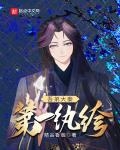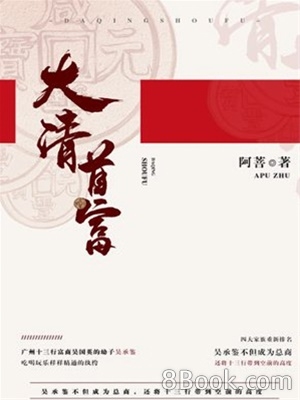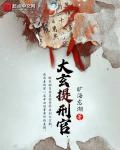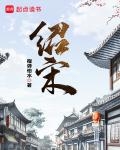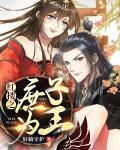Chapter 203: The Butcher's Knife (Part 3)
Linzi County was not the largest city in the current Han regime, but Qingzhou City, which Qian Qing led his army to conquer, was. However, Linzi was the current capital of the Han regime.
Facing the crisis, the gates of Linzi were heavily guarded, and everyone passing through had to be questioned, even the military.
When Gao Pang and his companions arrived at Linzi City, they lined up at the military inspection gate. While waiting, they heard the troops talking about the Qing cavalry. Everyone was angry and gnashed their teeth at the enemy's brutality.
"Hey! Isn't this Gao Pang?" A woman's voice came from the side.
Gao Pang looked up and saw that it was Qian Qing. She was riding on a horse and preparing to go out with a group of people.
Qian Qing jumped off his horse and walked up to Gao Pang, "Why are you back again?"
Gao Pang felt a little embarrassed when he heard the mockery in Qian Qing's tone. However, this embarrassment was soon washed away by anger . Although he had considered that he might choose to join Huo Chong when Huo Chong became powerful, Gao Pang did not expect that he was not so utilitarian.
With murderous intent boiling in his heart, Gao Pang replied, "I want to surrender to Mr. Huo."
Qian Qing was stunned, "Why?"
"The Qing Dynasty is unjust!" Gao Pang replied hatefully.
Qian Qing took his hand away from his waist and stretched it towards Gao Pang, "If you have made up your mind, don't regret it!"
Gao Pang shook hands with Qian Qing, "I've heard that the Qing Dynasty killed people like crazy! Now I know it's actually true!"
"Of course it's true!" Qian Qing's face showed deep resentment.
She let go and said a few words to the person in charge of the review. Soon, Gao Pang and the guards were registered and questioned first. Then they were let into the city.
When Gao Pang saw Huo Chong again, he stepped forward and said, "Sir, I wish to restore the Han Dynasty!"
"The Qing Dynasty led beasts to eat people. Do you finally know?"
"Yes!" Gao Pang replied bitterly, "Sir, you said that the Qing Dynasty would never go against their logic of oppressing the people. I thought that was just a matter of conquering the world, a helpless situation in troubled times. I didn't expect that the Qing Dynasty's methods have not changed at all!"
Huo Chong was stunned for a moment, and couldn't help but ask for confirmation, "Yueban, have you thought about how to conquer the world?"
Gao Pang replied generously: "Yes. The Qing Dynasty and you fought each other, and the victory or defeat was determined by their own abilities. But in order to deal with you, the Qing Dynasty actually killed all the people under your rule and trapped you to death. Such tragic events are inevitable when dynasties change. But I don't approve of this approach!"
Listening to Gao Pang's story, Huo Chong felt that the young man obviously did not understand that what he was talking about was a certain strategy. It was probably because Gao Pang had never received relevant education, so he did not understand strategy and execution planning. So he inevitably mixed them up.
It's just that ordinary people can't easily distinguish between purpose and means. Gao Pang has been seeking advice from Huo Chong for a short time, and he can already vaguely tell these things separately.
When Gao Pang chose to leave, Qian Qing actually wanted to kill him... It seems that it was not just because Qian Qing was narrow-minded.
Gao Pang was not a serious person and did not consider this at all. At this moment, Gao Pang was dominated by anger and the impulse of justice caused by anger.
The Guards Regiment was a very elite force in the Han army. Even if there were only a few of them, they were able to kill dozens of unprepared Mongolian cavalrymen.
On normal days, such fighting power would be enough to attract all of Gao Pang's attention. However, in the village that was massacred, Gao Pang was focused on something else.
The Mongolian guards outside the village were killed in battle, but most of the Mongolian cavalrymen inside the village did not die so honorably. Several of them were killed on the spot when they were slaughtering civilians in the street. When Gao Pang passed by their bodies, he wanted to kick them a few more times.
Killing women and children, even in the streets, is something that only happens when the book describes "leading beasts to eat people."
When the head of the guard regiment led the soldiers to kill the Mongolian soldiers on the street, more Mongolian soldiers ran out from the people's homes, holding up their pants and tidying up their clothes. This attitude made it easier for the Han army to kill these guys, but the performance of these guys made Gao Pang feel that something was even more wrong.
Sure enough, the woman in the house was raped.
Listening to the anguished cries of the women who had been violated, Gao Pang felt and understood that the Qing army had committed brutal acts according to their logic, just as Huo Chong had judged.
Huo Chong is leading the people to fight against this beastly army.
The people in the Shandong Han regime were angry about the Qing Dynasty's massacre of the people, and they mobilized troops to deal with it. In the capital, where this order was issued, the bigwigs were anxiously waiting for the result of the massacre.
When the latest news was delivered to the Ministry of War by a fast horse of 800 li, there was jubilation inside the Ministry of War. After confirming that the first wave of massacres had killed thousands of civilians, Shangshu Tongjia Fahai was filled with joy and cheered loudly, as if he had annihilated Huo Chong's 100,000 troops on the battlefield.
Of course, such good news could not be enjoyed only by the Ministry of War. Minister Fahai immediately went to the Old Summer Palace to pay a visit to Emperor Yongzheng.
Since the third year of Yongzheng's reign, Yongzheng basically worked in the Old Summer Palace and only went to the Golden Throne Hall when he attended court.
It is generally believed that Yongzheng was ill and had a history of being afraid of heat. The Old Summer Palace was very cool and Yongzheng liked it very much.
Some people also believe that since the Empress Dowager now lives in the palace, Yongzheng could avoid visiting the Empress Dowager every day by moving to Yuanmingyuan.
Regardless of the real reason, Fahai brought the news of killing thousands of people to Yuanmingyuan, which brought a lot of joy to the garden. Yongzheng was very satisfied with the result. The emperor, who was well-known for his cold-faced image when he was in the prince's residence, was satisfied, and the palace maids and eunuchs under him were also much relieved.
Soon, the second "war report" was sent in. This time, the Mongolian Eight Banners cavalrymen gained more and killed more than a thousand civilians.
This massacre made the Qing court feel much more at ease. If it were like before, every battle would be lost, and every defeat would kill thousands or even tens of thousands of soldiers. The court really couldn't stand it!
Even though he knew that Yongzheng was moody, the Minister of War Fu Hai still showed a look of joy on his face. The second time he met Yongzheng alone, he kowtowed first and then said with great joy: "Master, you are wise. You used the method that Emperor Shunzhi used to deal with Shandong, and it has worked. If this continues, Huo Chong, the bandit, can be destroyed within a year or two!"
Yongzheng was not yet carried away by his success. He simply called over the young official standing beside him and said, "It was this Shandong scholar who thought of it."
The Minister of War, Shu Hai, looked at the man and saw that he was tall and good-looking. He praised him immediately, "So he is a Jinshi. What is his name?"
The young Jinshi didn't say anything. Here, Yongzheng was the only one in power. When to speak and what to say were all decided by Yongzheng. Jinshi were just the emperor's ministers. According to the rules of the Qing Dynasty, these people were just the emperor's henchmen.
Has anyone ever seen an eagle or a dog proactively express their own opinions?
"His name is Liu Tongxun. He is a Jinshi in the second year. He works as an assistant in the Southern Study." Yongzheng said with some satisfaction.
"Oh! It turns out that he is a second-year Jinshi. The Jinshi selected by the master is already capable of taking on important responsibilities!" The Minister of War quickly complimented him.
Of course, this cannot simply be called flattery.
Shujishi, also known as Shuchang, is named after the meaning of "Shuchang Jishi" in the Book of Documents. It was a short-term position in the Hanlin Academy during the Ming and Qing dynasties. It was held by those who passed the imperial examinations and had the potential to be selected. They were close ministers to the emperor and were responsible for drafting imperial edicts and explaining classics to the emperor.
After Yongzheng, the selection of officials became more strict, and the decision was made by the imperial examination presided over by the emperor. The term of the Shujishi was generally three years, during which time experienced people in the Hanlin Academy would teach them various knowledge. After three years, an examination would be conducted before the next joint examination, which was called "Sanguan". Those with excellent results would remain in the Hanlin Academy and be granted the title of Hanlin Academy Reviewer, officially becoming a Hanlin, which was called "Liuguan". Others were sent to the six ministries as directors or censors; some were also sent to various places to serve as officials.
Becoming a scholar-official and being able to work in the Southern Study Room, needless to say, he was favored by Emperor Yongzheng. The Minister of War, Fu Hai, was of course polite.
However, no matter how powerful the Shujishi was, he was not worthy of being flattered by the Minister of War who was born in the Tonggiya clan. Fahai came here to report the task assigned by Yongzheng. During this period of time, the Ministry of War came up with a plan to completely resolve the rebellion of Huo Chong.
Since the previous battles proved that it was impossible to annihilate Huo Chong in a field battle, and it also proved that the government troops were no match for Huo Chong in a field battle, the Ministry of War proposed a plan to mobilize 300,000 troops to annihilate Huo Chong.
This plan was rejected by the Ministry of Revenue before it was rejected by Yongzheng. The Ministry of Revenue directly used the views of the Ministry of War to refute the Ministry of War, which believed that Huo Chong was a sitting bandit. Sitting bandits would not fight on the move, but would only accumulate strength and gradually expand.
In fact, Huo Chong did not even capture the city of Jinan. After making such a big fuss and killing so many government troops, he was still active in Jiaodong, which was surrounded by the mountainous area.
Since there was no need to worry about Huo Chong escaping Shandong, there was no reason to mobilize the army. With 300,000 troops, let alone whether they could win, 30 million taels of silver had to be spent. This was Shandong's tax revenue for 15 years.
After experiencing such devastation, Shandong took another ten years to recover.
Just as the Ministry of War and the Ministry of Revenue were arguing, Yongzheng himself put forward a suggestion, which was to mobilize the cavalry of the Eight Banners of Mongolia to march south to the area controlled by Huo Chong in Shandong to kill the people.
The bandits were most afraid of their lair being raided, and the cavalry moved back and forth like the wind. The Mongolian Eight Banners would not leak secrets if they moved south. This should have an effect. The Ministry of War and the Ministry of Revenue were conquered by Yongzheng's wisdom, and they prostrated themselves on the ground and shouted "Master is wise."
The Minister of War, Shu Hai, brought the encirclement drawn up by the Ministry of War. The troops were deployed with the Daqing River, the Yellow River, and the Grand Canal as the boundaries to prevent Huo Chong from rushing out of this defensive circle. If Huo Chong really led his troops to break through this line of defense, the Mongolian Eight Banners would kill as many people as possible in Huo Chong's base.
When Huo Chong's men learned that their relatives were dead, it would be strange if they didn't eat Huo Chong, considering the bandits' behavior! At the very least, they immediately fled in all directions.
Looking at this plan, Yongzheng hesitated a little, and finally just let Fahai go back first.
Fahai kowtowed and left. But seeing that Liu Tongxun was still standing beside Yongzheng, Fahai felt that Liu Tongxun would definitely give Yongzheng some advice. He just didn't know what Liu Tongxun would say.

